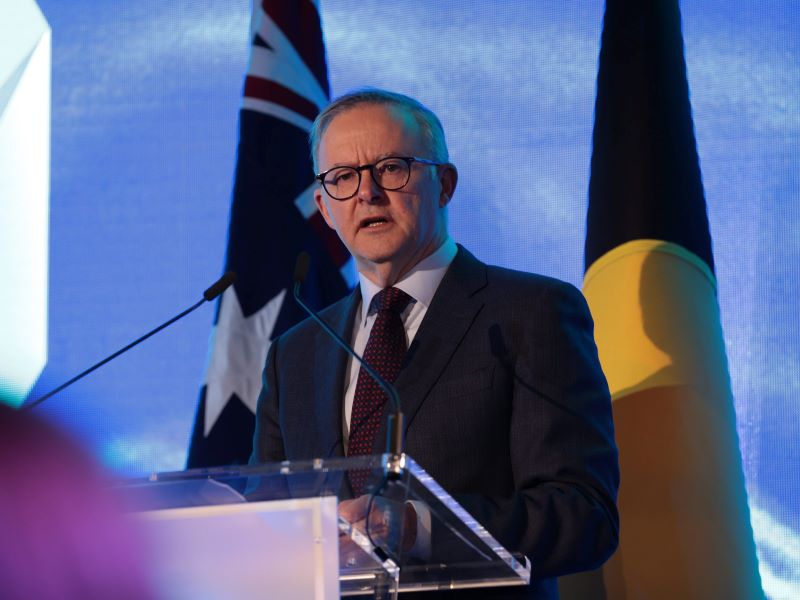Australia will begin stockpiling critical minerals like lithium, cobalt and silicon from 2026 to insulate against geopolitical shocks and build up a fledgling processing industry if Labor is re-elected.
Prime Minister Anthony Albanese announced Thursday that an initial $1.2 billion taxpayer investment would launch a multi-generational national reserve of critical minerals and rare earths, which will purchase, own and sell to domestic industry and like-minded nations.
The critical minerals are essential to modern technologies like batteries and computer chips, becoming a key bargaining chip in geopolitical affairs.
Australia’s new reserve would reportedly be made available to the US and help sweeten a new tariff deal with the Trump administration.

Mr Albanese first flagged the reserve earlier this month in response to a 10 per cent tariff on all Australian exports to the US, part of the Trump administration’s sweeping trade tariffs.
On Thursday in Western Australia he released details on the Critical Minerals Strategic Reserve, including the initial $1.2 billion investment, which includes a $1 billion increase in the existing Critical Minerals Facility.
“It will mean we can deal with trade and market disruptions from a position of strength. Because Australia will be able to call on an internationally-significant quantity of resources in global demand,” Mr Albanese said.
“This will be a national asset and our Government will use it to advance Australia’s national interest.”
Which critical minerals – Australia officially identifies 31 in its official strategy – will be purchased and stockpiled is yet to be determined, but Labor says the reserve will be operational in the second half of 2026.
The new reserve will add two mechanisms. National offtake agreements will offer contractual arrangements to commercial critical minerals projects for the government to acquire agreed volumes or establish an option to purchase at a given price.
A selective stockpiling mechanism will allow the government to stockpile certain key critical minerals produced under offtake agreements as required.
The key consideration for which minerals will receive offtake agreements and stockpiling will be “strategic reasons”. The reserve is expected to focus on a subset of critical minerals that are most important for Australia’s national security and the security of key partners, including rare earths.
The reserve will eventually generate cashflow for government when it begins selling to global markets and key partners, with some of the supply to be available to domestic industry.
Mechanisms and allocations will be determined by government after a taskforce scopes options and public consultation.
Smaller and time limited stockpiles of less critical but still priority minerals determined by market demand will also be accumulated.
The reserve could be a boon for Australia’s critical minerals mining and processing industries, with the latter already gearing up for $7 billion in production tax incentives from the government’s Future Made in Australia plan.
The opposition has vowed to repeal the tax credits and similar incentives for green hydrogen, claiming they will be ineffective and amount to corporate welfare.
On Thursday, opposition leader Peter Dutton said the Coalition will not support the new reserve either.
“We’re not supporting this plan because it is a reheat and rehash and reannouncement with no delivery,” Dutton said.
Following reports the new reserve will be used as a bargaining chip in tariff negotiations with the US, Resources minister Madeleine King said it is “not designed for any one particular set of negotiations” but will help US trade talks.
“There is no doubt it could come in helpful for negotiations with the US administration,” Ms King told ABC radio.
“But equally with other partners who have already participated really actively and very reliably in our critical minerals industry.”
Do you know more? Contact James Riley via Email.


Nothing quite like staying ahead of the game, when you’ve not even made a start on the stockpile.
We could see this issue developing since around 2012 and yet, no one thought it would be a good idea to keep some aside for a rainy day (or the CCP throwing its toys out of the cot once again).
The intellect of some of our “leaders” is underwhelming, across all political spectrums.